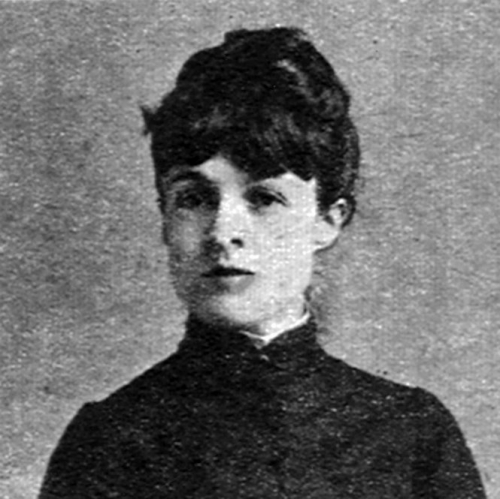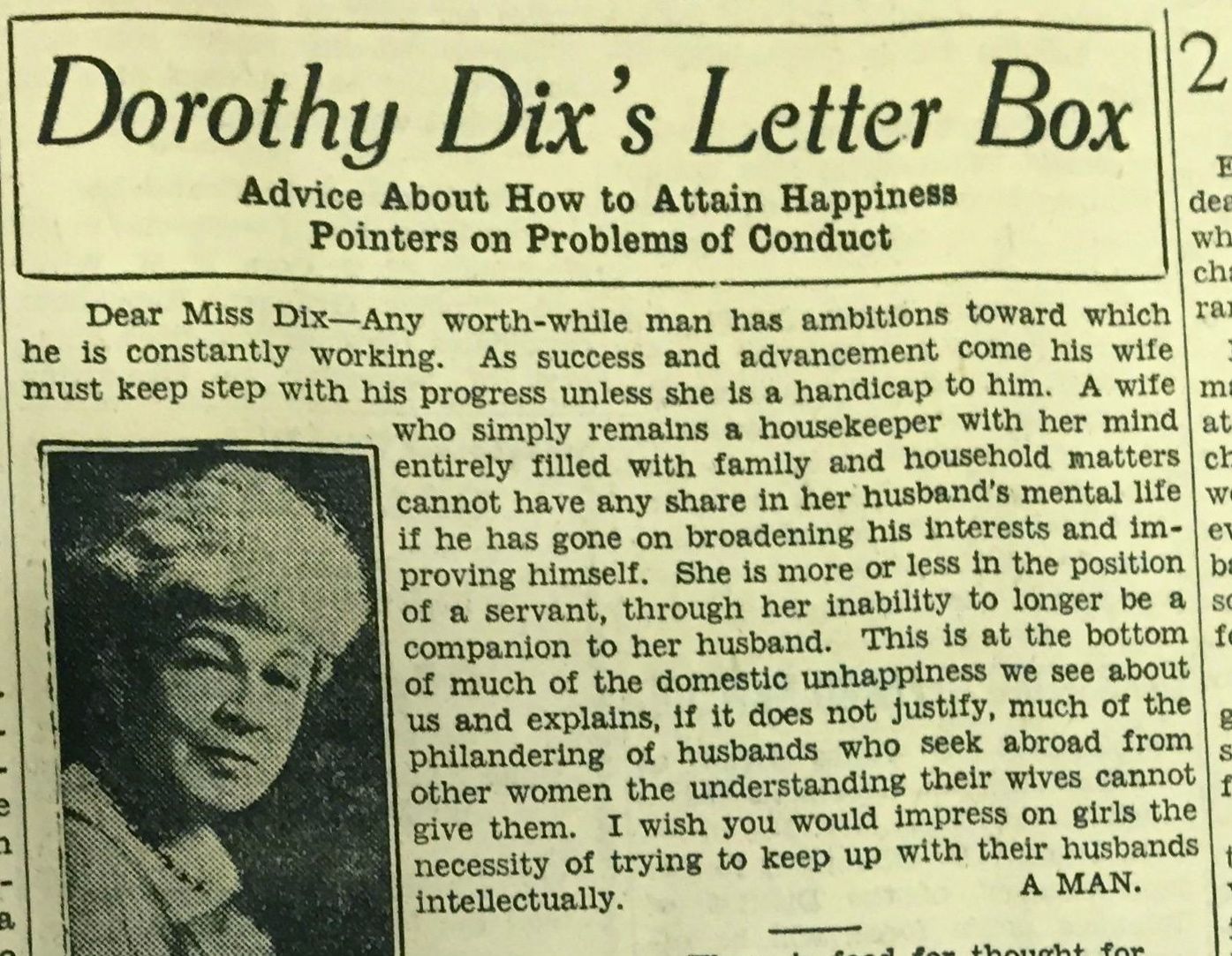Dorothy Dix
 Author
Author
1861-1951
by Arian Finley
Elizabeth Meriwether, more famously and internationally known as Dorothy Dix, a popular advice columnist, was born in 1861 near Clarksville. Meriwether did not have a proper school training as a young girl. When a stranger came to their home seeking shelter, he used their grandfather’s expansive library collection, to teach her classics such as Dickens and Shakespeare. Her mother passed away in Meriwether’s early teens, and her father married Martha (Mattie) Gilmer. The family moved to Clarksville and enrolled Meriwether into The Female Academy of Clarksville. It was here that she developed her fondness for writing. She graduated from the academy at 16, having established herself as an exceptional voice among her peers.
In 1882, Meriwether married her stepmother’s brother, George Gilmer. Gilmer moved around Tennessee in order to find work. Meriwether was unhappy with her life, and began to write as an escape at the age of 25. When Gilmer’s mental and physical health pushed her to a mental breakdown, Meriwether’s father to sent her to the Gulf Coast to rest. On her trip, she met Eliza Jane Nicholson, the owner of New Orleans’s newspaper, The Picayune, and the first female publisher of a daily metropolitan newspaper in the nation. Nicholson purchased her first story, “How Chloe Saved the Silver,” from Meriwether. The story was inspired by the acts of a family slave, Mr. Dicks, who hid the family silver when Union raiders came to their home. Impressed, she offered Meriwether a position in her newspaper. Her first piece appeared in 1896. She explored different subjects until she was eventually asked to write an advice column, which would become “Sunday Salad.” Giving Mr. Dicks credit to jump-starting her career on account of her story, Meriwether adopted the pen name Dorothy Dix.

Dix became massively popular through her advice column, which was soon renamed “Dorothy Dix Talks.” She attracted the attention of New York Journal, and she was offered a job reporting crime in 1901. Dix was reluctant to leave her home, but she recognized the opportunity, and ultimately spent 17 years around the country, interviewing murderers and giving reports on popular trials before returning to New Orleans. Despite her absence, she had continued to write for her advice column and grew more popular than ever. It was during this time that Gilmer left her. He was soon placed in a mental institution until his death. Needing a break, Dix decided to take a trip around the world; after her trip, she returned to Clarksville, Tennessee, to attend a family reunion at Dunbar Cave.
As Dix aged, she still pushed herself to write, in spite of various illnesses and conditions that came with aging. In 1950, her gift of persistence finally came with a price: she had a stroke. This stroke left her lower body paralyzed. Dorothy Dix passed away in 1951 at the age of 90 in New Orleans. Her loss was internationally felt, with an audience of 60 million that praised her. Dix pioneered the way for advice columns, and her legacy can be seen today in columns such as “Dear Abby” and “Ask Ann Landers.”


